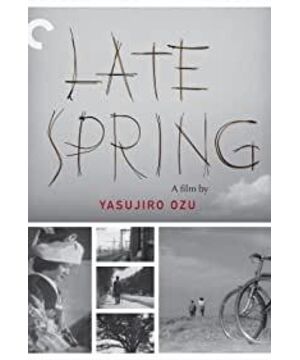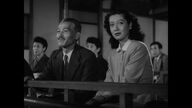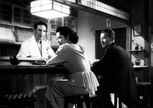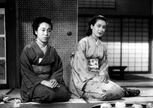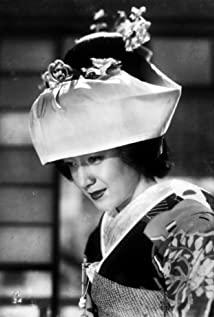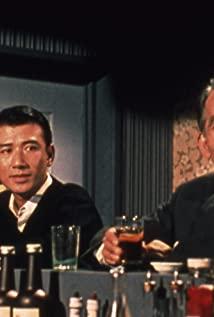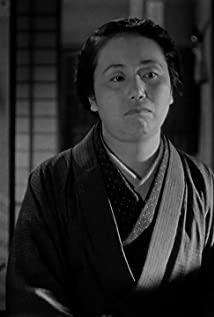"Late Spring" is an exemplary Ozu text: fixed-low camera shots, few moving ones; Japanese-oriental minimalist aesthetics; the meta-narrative language of father-daughter and traditional family...
Unlike Ang Lee's "Food Men and Women", Ozu directly refers to the Electra's Electri complex that the daughter of a woman is born with "Electra".
Ozu sticks to the traditional family in a retreating posture: the so-called "late spring" refers to the "spring color" when the daughter who is married late is covered in kimono, and the father is already "late autumn". As a "pseudo-ethical subject", Ozu's daughter took an Antigone-style ethical sacrifice—a single father, clinging to her side, even at the expense of her father's continuation—to be strangled by her father. The daughter reshapes the ethical space of the family's fixed form through marriage, and re-enters the cyclical libidinal space of desire. Perhaps the "self-interest" and "altruism" of ethical sacrifice behaviors should be strictly distinguished, and even the overlap. In Kobayashi Masaki's "The Sword of Death," father and son defend their ethical choices, actions, and consequences with absolute sacrifice.
As for Ozu, we can see the intertwining/short-circuit of "selfishness" and "altruism": father and daughter are objects of desire for each other, and the two are constantly fighting, as if they are "flirting" to choose and choose - the only daughter who has autonomy The behavior is not only in the act of "disobedience" on the road with his father after watching the play.
The father is both the ultimate ethical subject and the pseudo-ethical subject. The father—the same as the daughter’s “Antigone-style” ethical sacrifice—the “Oedipus-style” ethical sacrifice—the father uses the continuation as a lie and deceives on the daughter. Near the end, the father returned to the empty room, where there was no more laughter from his daughter, he slumped in his seat, and cut the peel in a lonely way. The end of the wave ends, doesn't it just refer to the loss of the father's desire? ——It is based on the suppression of his daughter Antigone’s ethical sacrifice and “self-castration”——After the truth of Oedipus killing his father and marrying his mother came to light, his self-harmed eyes gave birth to “another eye”, and "Oedipus" Not so with the father in Late Spring. "Late Spring" is also not like the "Diet Men and Women" in which the father indirectly transfers the plot and desire of "loving women" to others. On the last trip before marriage, the daughter looked at the vase in the dark room, which is the best portrayal of the daughter's situation, but it was reflected as the best portrayal of the father's situation after the choice of ethical behavior.
The absence of the image of son-in-law and mother-in-law is an Ozu-style blank space, and it is also a portrayal of the "absence" of the object of father-daughter desire. Ozu is not based on "No", but rather based on "One" - that Ozu who "has a daughter", with the extradition of "No" - and finally replaced by "No" "One", that is, Ozu, who is completely one and never married - can only be "nothing" in the end.
View more about Late Spring reviews


